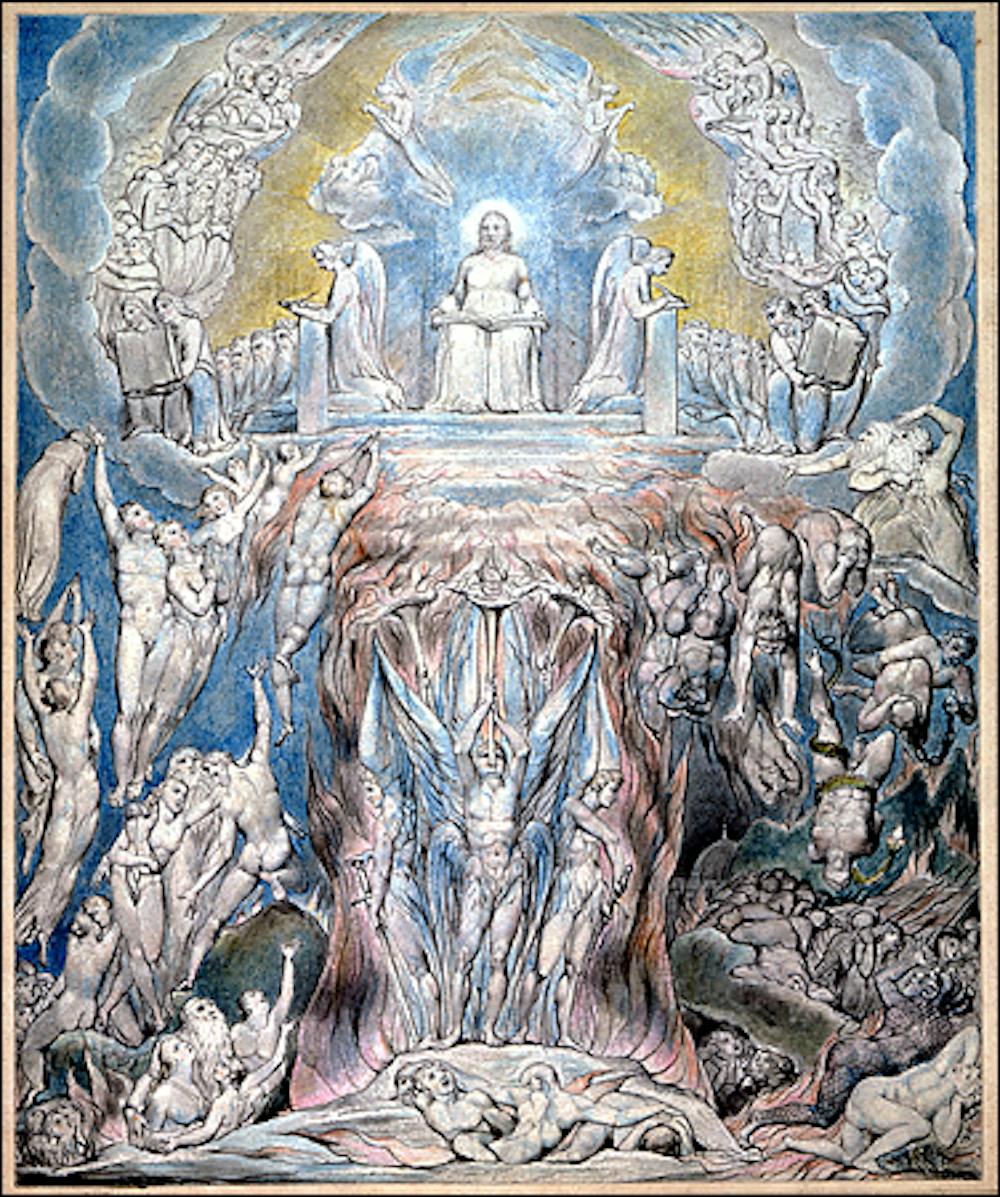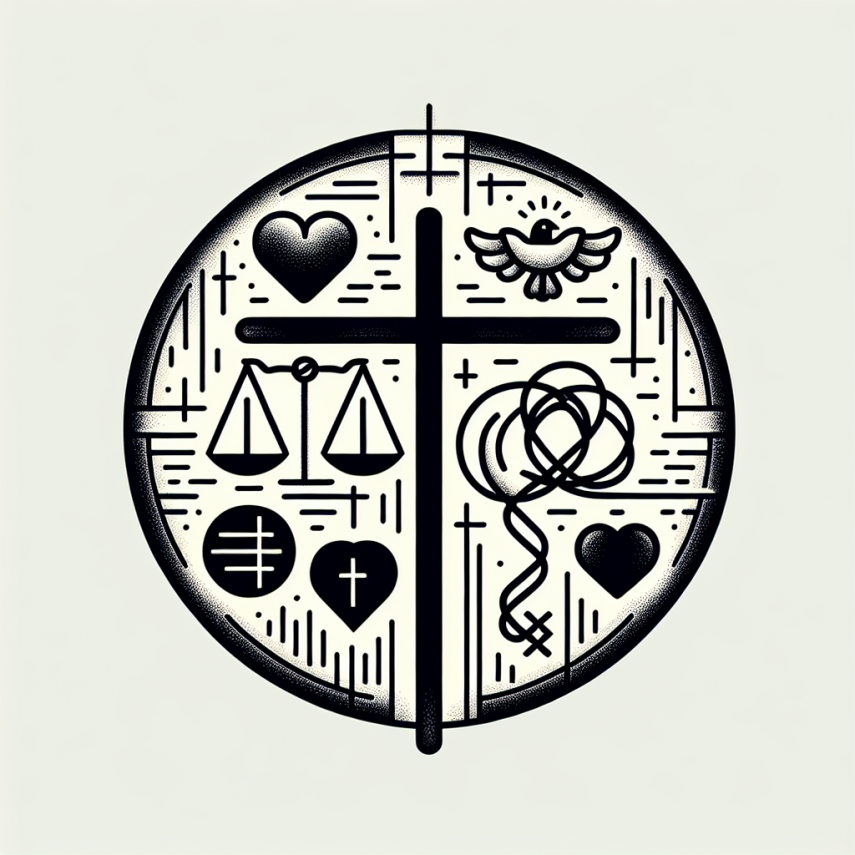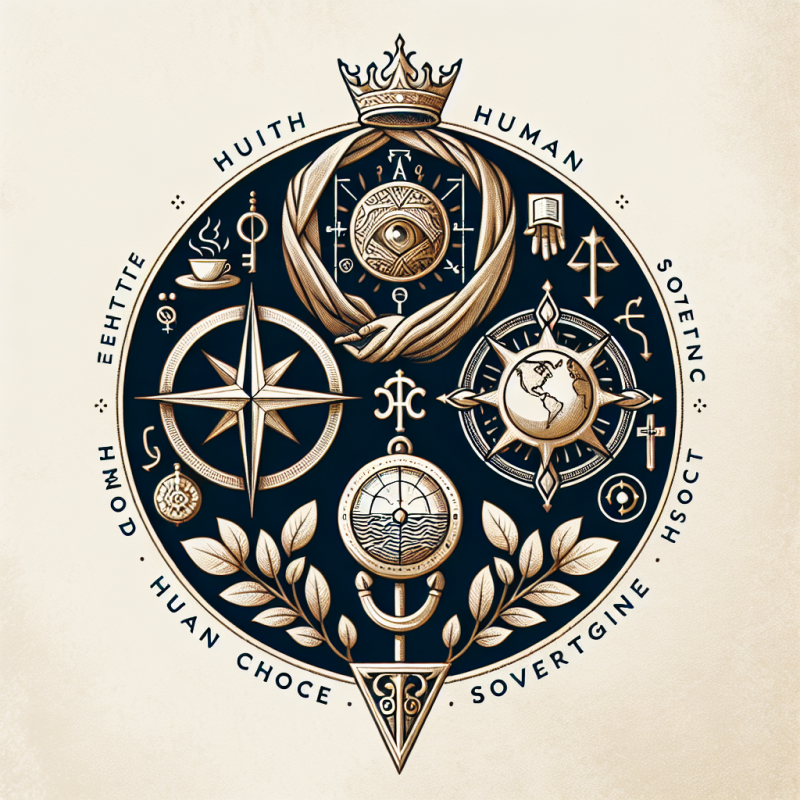Exploring the Christian Doctrine of Hell and Eternal Judgment
One of the most difficult and frequently debated aspects of Christian theology is the doctrine of hell and eternal judgment. As someone who has wrestled with the nature of faith, sin, and grace, this topic has often left me grappling with profound questions about justice, mercy, and the purpose of human existence. In this article, I want to delve into some of the core aspects of this doctrine and offer a few reflections based on tradition, scripture, and the nuances of Christian teaching that intersect with reason and compassion.
The Christian Concept of Eternal Judgment: An Overview
As is widely recognized, the vast majority of Christian tradition holds to a belief in eternal judgment. This is based on scriptural passages such as Matthew 25:46, where Jesus speaks of the “eternal punishment” faced by the unrighteous, and the “eternal life” awaiting the righteous. The early Church fathers, such as Augustine, strongly advocated for this perspective, viewing hell as a place of eternal suffering for those who die in a state of sin, separated from God’s grace.
There have been, however, minority views throughout Church history, most notably the concept of universalism—the belief that, eventually, all souls will be reconciled to God. Nevertheless, this remains a minority viewpoint, with the majority of Christians affirming that there will be an eternal separation between “those who are saved and those who are not.”
Is Eternal Punishment Just for Temporal Sins?
One of the most compelling questions surrounding this doctrine is whether eternal punishment is justified for sins committed in a lifetime measured by decades. Many people find it difficult to reconcile the concept of a loving and just God with the notion of infinite, unending punishment. At face value, it seems disproportionate—especially in light of human frailty and our short, flawed lives on Earth. This topic relates very closely to the problem I confronted in my own spiritual journey—how do we balance the tension between divine justice and divine mercy?
When contemplating this, it’s vital to understand a few distinctions within Christian thought:
- Is the Punishment Infinite? First, although the punishment lasts eternally, the form this punishment takes is often debated. The traditional image of hell where souls “burn in everlasting fire” may be more metaphorical than literal. The key element of the doctrine is not necessarily the mode of punishment but the idea of eternal separation from God’s presence.
- The Nature of Sin and Its Consequences: Another critical point is the argument that the nature of one’s punishment is not solely linked to the timeframe of the sin, but rather to the nature of the being against whom the sin is committed. In Christian theology, God is depicted as an infinite being of perfect holiness. Therefore, sins against an infinite being carry consequences that, in theory, correspond to the infinite nature of God’s justice and worth.
Consider this: when we sin against God, we are not merely breaking a rule set by a distant lawgiver. Rather, we are acting against the infinite goodness and perfection of God. Catholic teaching emphasizes that sin is not merely an act but has deep cosmic and relational consequences. In light of this theological understanding, some argue that it is not the duration of the sin that matters but whom the sin is committed against. An evil act against an infinitely good God demands justice that is similarly infinite.
< >
>
Why Doesn’t Everyone Get a Second Chance?
Another challenging component of the doctrine is the belief that those in hell do not repent or seek reconciliation with God. Within the framework of Christian theology, free will plays a crucial role. God created humans with the ability to make free moral choices, including the possibility of rejecting His grace. Once a person dies in a state of unrepentant sin, they are believed to have permanently set their course to eternal separation from God’s goodness.
This raises the question: Couldn’t those punished in hell eventually “see the light” and turn back to God, especially knowing the gravity of their eternal fate? Here, many theologians point to the continued state of rebellion. They argue that those in hell are not perpetually repentant individuals seeking forgiveness but are instead locked into a position of perpetual rejection of God’s love. C.S. Lewis, in his book The Great Divorce, depicts hell not as a place lavish with physical torment but as a state of spiritual isolation where individuals continue to reject God willingly.
Another perspective suggests that while judgment is final, it reflects the individual’s own choice to refuse divine grace, not so much God arbitrarily sending people into punishment. Again, this ties closely to the Christian understanding of free will where individuals, out of moral agency, choose separation from God.
Universalism: A Minority View
Historically, there has been room for debate within the Christian tradition about whether hell is truly eternal for all souls. Prominent figures like Origen and more recently Hans Urs von Balthasar posed the possibility that, through God’s grace, all people might one day be united with God in eternity, an idea called universalism or apokatastasis—the hope that in the end, “God will be all in all” (1 Corinthians 15:28). However, such views have been generally seen as speculative and have been critiqued by mainstream Christian orthodoxy.
Compassion Amid Judgment
I’ve found that discussing hell can quickly become emotionally charged, because God’s judgment is a deeply unsettling topic for many. As much as hell represents the gravity of human moral responsibility, it is always balanced by God’s overwhelming love and grace. Christian teaching also emphasizes that God desires no one to perish but “for all to come to repentance” (2 Peter 3:9). The call for Christians is to focus not on speculating about who is in hell but to live a life of compassion, helping others encounter God’s grace so they can avoid such a fate.
< >
>
<
>
Conclusion: Embracing Mystery
At the heart of this discussion lies a mystery that, as human beings, we may not fully comprehend—the balance between divine justice and divine mercy. It is not for us to know definitively who will be separated from God eternally (if any at all), but what we must grasp is the significance of the choices we make in this life and how they shape our eternal destiny. Sin, grace, and human freedom converge in ways that we can only partially understand, yet they play key roles in our spiritual journey.
As someone navigating a faith journey shaped by doubt, discovery, and personal reflection, I don’t claim to offer easy solutions. What I’ve learned, however, is the importance of approaching these matters with humility and trust in a God who is infinitely just and infinitely loving. As we seek to understand, we might take solace in knowing that God’s ultimate design is redemptive—that He desires to restore creation rather than condemn it.
Focus Keyphrase: Christian Doctrine of Hell




This was such a thought-provoking read. It’s easy to wrestle with these kinds of doctrines—there’s so much we just don’t understand yet. The mention of free will especially struck a chord with me. I often wonder how much of our pain is caused by the choices we make, and this article really helped me process that. Thank you for writing about this topic with such care.
One of the most profound struggles in theology is balancing the concept of eternal judgment with God’s mercy. My hope is that this piece opens doors for deeper reflection and compassion as we contemplate these difficult teachings.